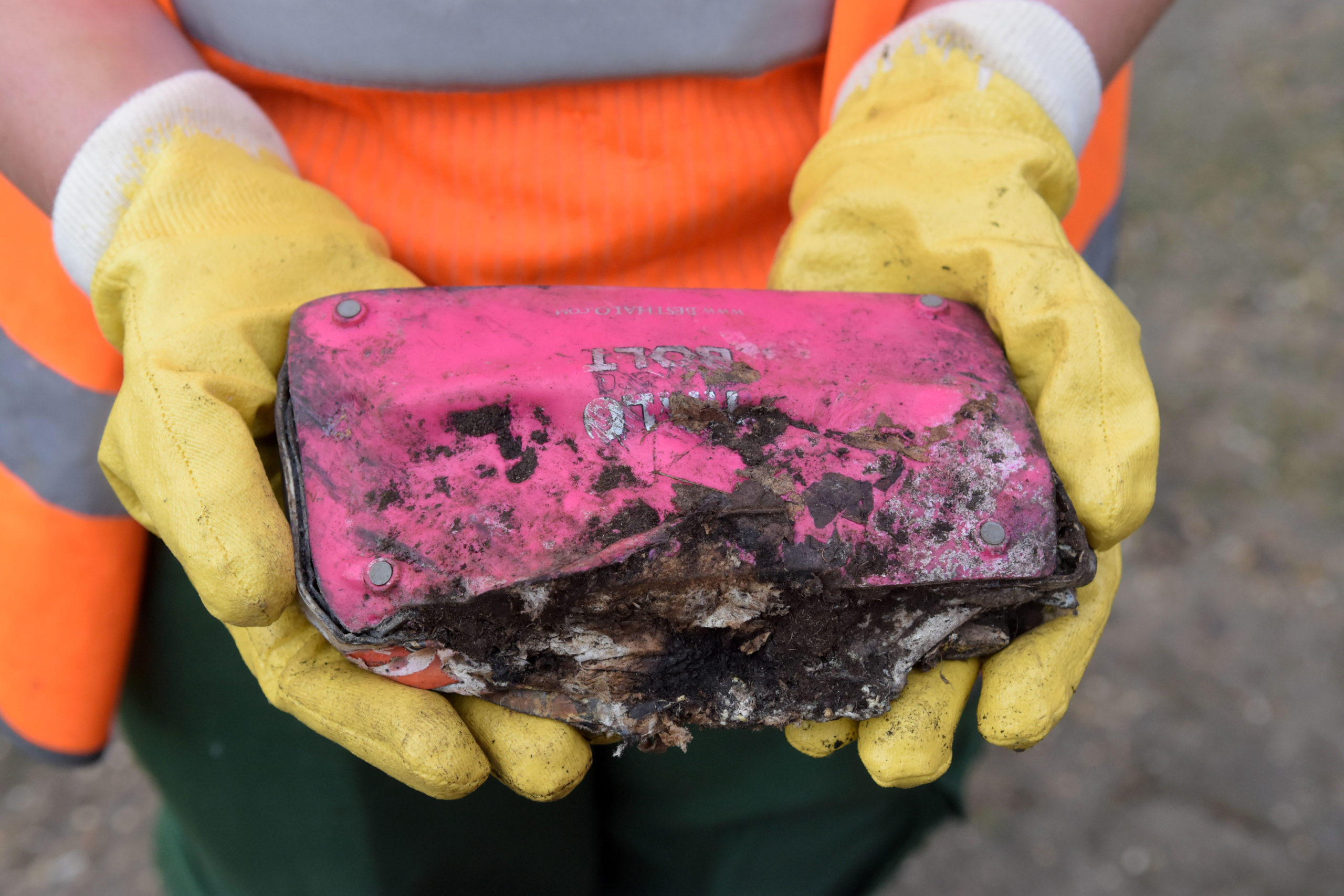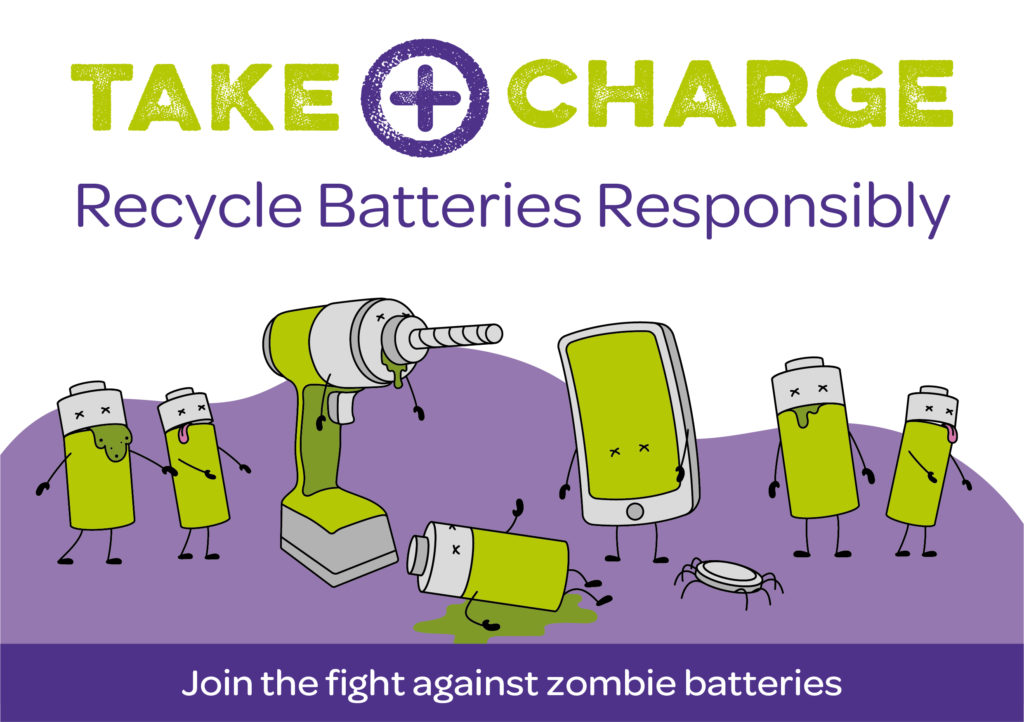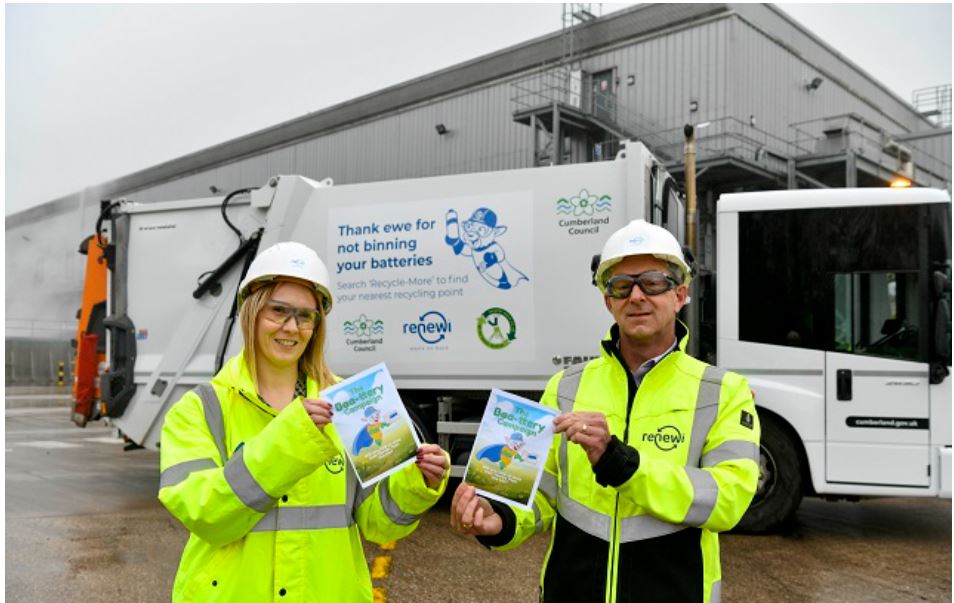First launched in October 2020, the Take Charge campaign urged the public to “join the fight against zombie batteries” (see letsrecycle.com story).
The ESA, the trade association representing the private waste sector, is to relaunch the campaign emphasising the message that “consumers should never bin batteries”.
The campaign tells the public to recycle batteries separately from other waste material at household waste recycling centres (HWRCs) or in larger shops, rather than putting them in their residual waste or recycling bins.
The original campaign secured “prominent media coverage” across national online, radio, television and print news media including the BBC, Guardian, Daily Mail, The Telegraph and Sky News, the ESA says.
To date, the campaign website has had more than 16,000 page views, the ESA says, while a film published alongside the campaign has been viewed more than 6,000 times.
Relaunch
The relaunch of the campaign will be split into two ‘phases’ and target two audience groups: the general public and “younger adults” in their late teens and early twenties.

Phase one of the relaunched campaign will take place from 24 October to 6 November and will be “zombie battery” themed to tie in with Halloween. The ESA will target the public with a focused period of activity over Halloween where all its supporting organisations will share a range of “digital collateral” across their social media channels, while it will also run a paid-for social media advertising campaign targeting young adults.
The second phase will take place from 7 November onwards and will not feature the zombie battery concept. The ESA will provide supporter organisations with a range of material including posters, banners, bin hangers, vector imagery and social media content to use across their locations and channels “in perpetuity”. The paid-for social media advertising campaign targeting younger adults will continue but without the Halloween-themed branding.
Battery compliance scheme Ecosurety is to sponsor the campaign’s next phase, the ESA says.
Fires
Data from the ESA shows batteries started nearly 260 fires in recycling or waste management facilities in the UK between April 2019 and March 2020.

Elsewhere, research conducted in 2021 by the ESA and Material Focus, the not-for-profit organisation funded by the waste electrical and electronic equipment (WEEE) compliance fee, found that at least 25% of the UK population throw batteries away in the wrong bins.
Of the people who throw batteries in the bin, most say they do not know what to do with them, the ESA says. Only 10% of those that bin batteries are aware of the fire risk. Those binning batteries appear more likely to be “younger and female”, the ESA says, particularly for loose batteries.
Campaigns
The ESA is not the only organisation to launch a public campaign aimed at tackling battery fires in recent times.
In July, compliance scheme REPIC launched an initiative aimed at reducing the risk of fires at HWRCs and treatment plants (see letsrecycle.com story). REPIC’s campaign sees battery collection drums and safety message posters installed at almost 400 local authority HWRCs with which the compliance scheme is partners.
And, a few weeks later, Material Focus launched a public-facing campaign of its own to raise awareness of the actions householders could take to tackle battery fires.











Subscribe for free